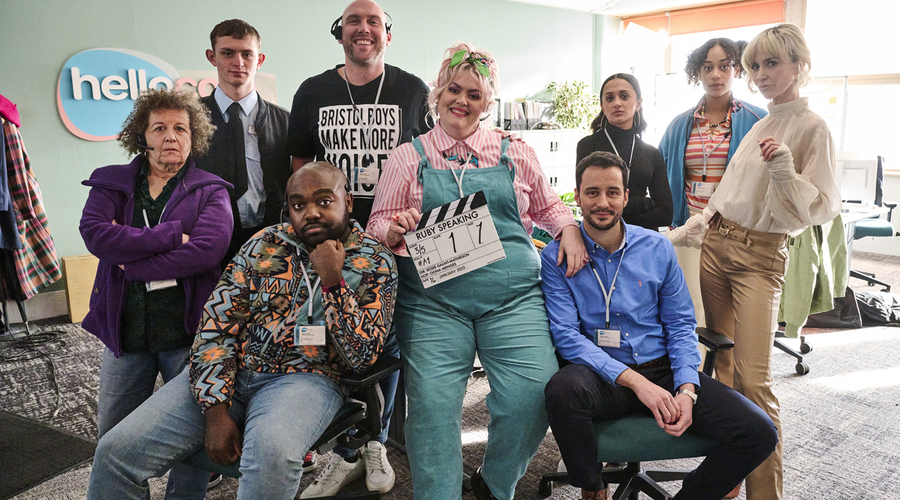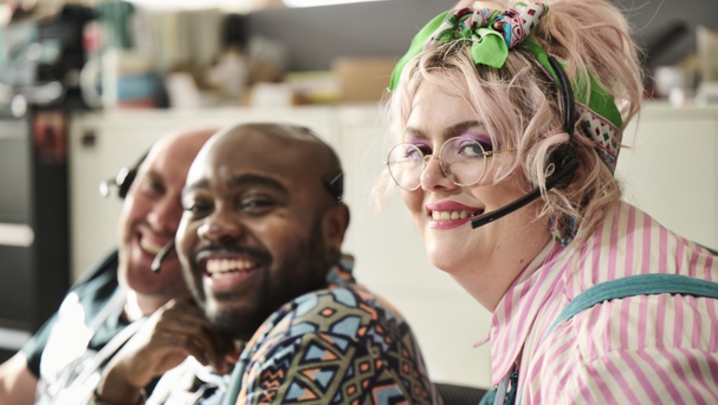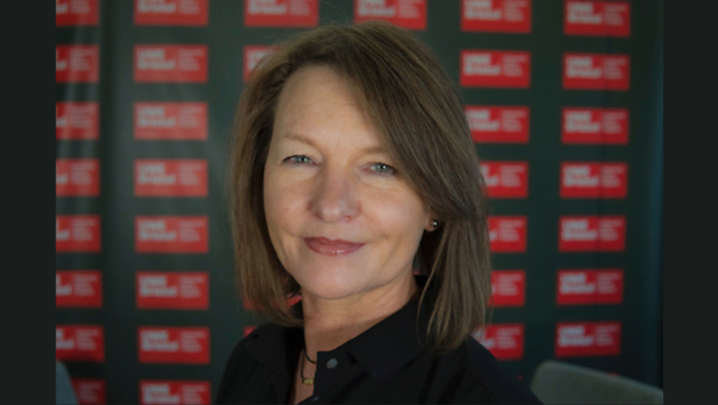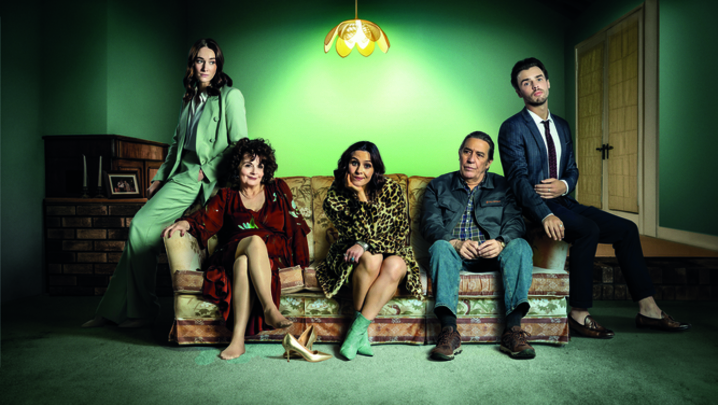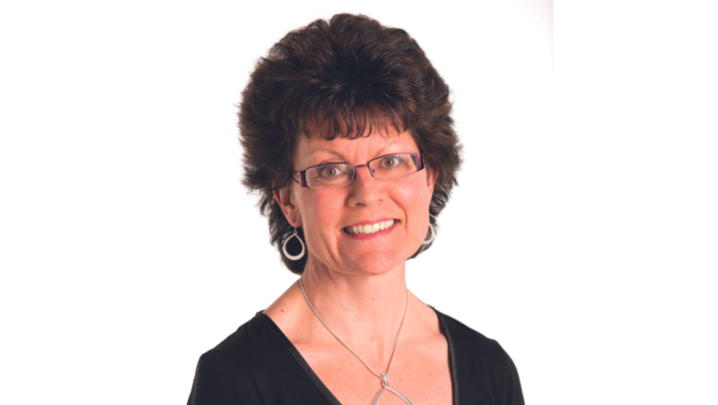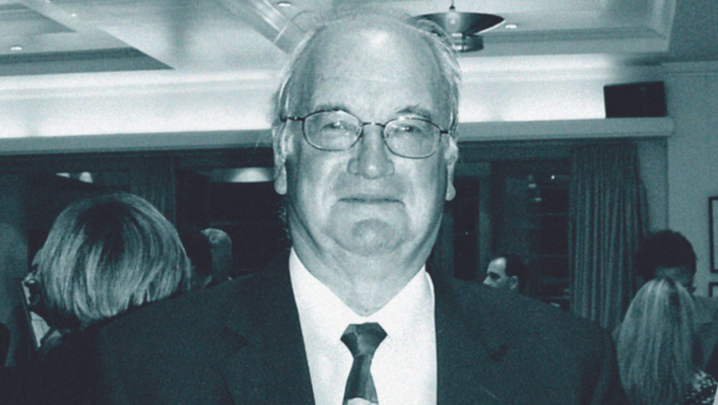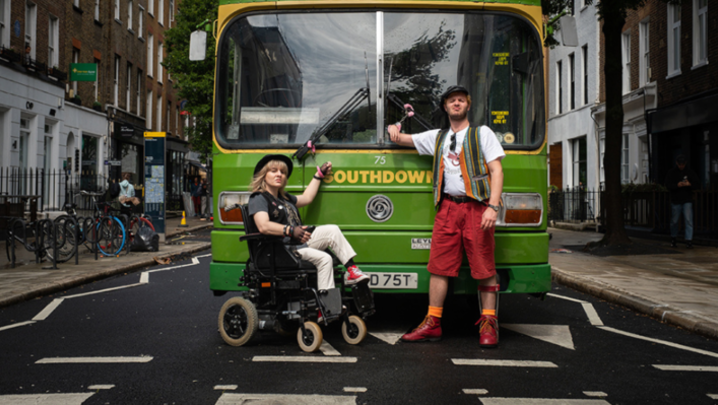Rosie Gaunt-Mathieson has directed her first series, the new ITVX sitcom Ruby Speaking, starring Jayde Adams, a fellow Bristolian.
It is not her first directing landmark: that came with the RTS award-winning student film Tea and Charity, while she was at Bournemouth University.
What does the job involve?
Directing narrative is a unique and wonderful labour of love, and to build worlds and realise characters on screen is a great responsibility. It’s piecing together a jigsaw of story, character, location, design and tone, often under pressure and fuelled by coffee. You need to be definitive, clear and strong-headed; you want your audience to buy into your characters on their journey – whether that’s about love or survival.
And when it comes to comedy?
As a director, you have to understand what is funny about the script and how best to interpret that. I’m obsessed with the rhythm of comedy and making sure I’ve got the build-up and the punchline. Light and shade is important – comedy needs space and quieter moments to make the funny moments sing.
Casting is so important: great actors inhabit the role and it’s important they understand comedy.
What makes a good director?
You have to be emotionally intelligent to be able to read your performers and understand what they need from you. It is important to have a strong vision and to be a good listener and collaborative as a director – performers need to feel they are working in a safe space. The most magical things happen when you’re working in a collective environment.
How much technical knowledge do you need?
I’m not very technical. When I started out, I thought I needed to swot up on camera lingo and lens sizes, but I’ve realised that all I need are really great heads of department with whom I have a shorthand.
I’m technically better with scripts and storytelling structure than equipment, which comes from years working in development, script editing and writing (which I do occasionally, too).
Ruby Speaking is your first series – was that daunting?
I’ve known Jayde [Adams] for a long time, since we did theatre studies in sixth form in Bristol and we have worked together on several things.
With Jayde, Abigail Wilson’s writing and the fact that it’s set in Bristol and in a call centre (I worked in a car insurance call centre in Bristol after my A-levels and we dicked about like they do on Ruby Speaking), it couldn’t have felt a more right or serendipitous project.
Bristol is my hometown and, when I got the script, I connected with it more than anything I’ve ever been sent. So, it was daunting in scale, but so very right.
How are you feeling ahead of transmission?
I feel good about it. I’d be lying if I said I wasn’t full of nervous anticipation (it’s six months of extremely hard and personal work), but I think we made a series that will provide a fun escape and does a great job of portraying a work family.
I felt very connected with the show’s characters and comedic tone, which is quite offbeat and heartfelt. It also has some beautiful pathos and important things to say about loneliness and female empowerment.
What was your route into directing?
I took Bournemouth University’s TV production degree and my graduate showpiece, a comedy called Tea and Charity, which I wrote and directed, and won an RTS Southern student drama award.
At that time, there were not many women directing and I defaulted towards producing: directing never felt like a real option. I started work as a production co-ordinator, booking cabs and doing call sheets and budgets.
I then wrote and produced some sketches as a means of getting into producing and [former BBC and Sky comedy boss] Lucy Lumsden, whom I’m working with now at Yellow Door Productions, where she is MD, said: “I bet you could have directed those.” It was a bit of a moment for me. She may not know this, but it did trigger a big shift – that and the fact there weren’t many women directing; I decided to be the change I wanted to see.
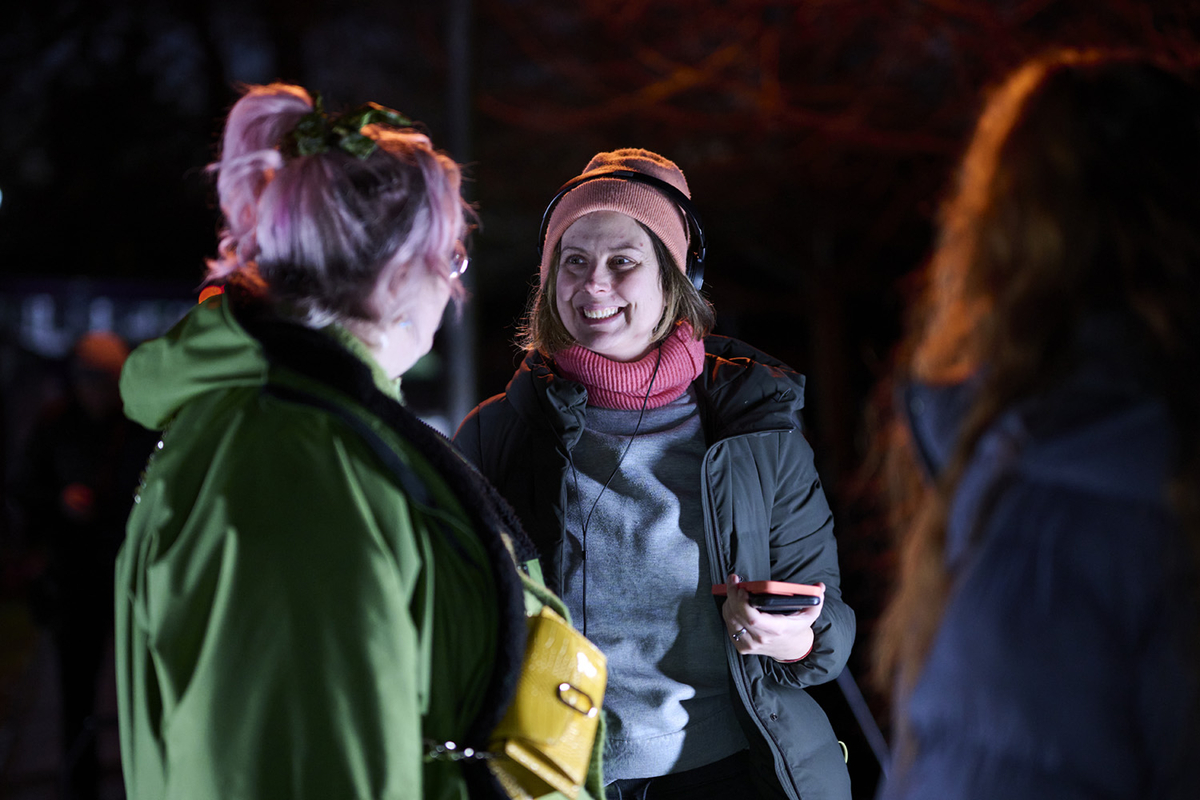
Is that when you made the leap into directing?
It took a few years. I worked in developing scripts and pitching ideas as a development producer, and then I ran two development departments [at ABC International and Little Dot].
Development can feel like having your heart repeatedly broken. When my husband and I found ourselves in a more stable financial situation, I left my full-time job and threw myself into freelance directing. It was intimidating to start with, and worrying when Covid hit, as we are both freelancers.
Grief and anticipatory grief has also been a catalyst: I lost my dad in 2019 and my mum while in prep on Ruby. Both of them had long, progressive illnesses that dominated most of my twenties and thirties. They both had different and mad sense of humours, which certainly influenced my humour and work.
When the worst things happen to you, such as losing family, it makes you evaluate everything. Losing both parents close together when I was quite young forced an independence, drive and bravery in me that I think goes hand in hand with directing.
What were the first programmes you directed?
I did a lot of commercials, sketches for Channel 4 show Big Juice, some branded content and Dawn of a New Gay, a short film with [Big Boys creator] Jack Rooke, which did well on the festival circuit.
I then got funding for another short, Just Delivered, which won an Audience Award at the Calgary International Film Festival. I directed two episodes of a kids series last summer for the BBC. It was hard to get those first gigs but people knew me from my years in the comedy world, which helped.
What do you take with you on to set?
A hat because my hair is a mess when I’m filming. Marked-up scripts with shot lists and blocking notes. My phone, which is useful for angles and framing, and to show mocked-up edits. Everything I own has a brightly coloured case so it’s easy to find when I’ve mislaid it on set for the 100th time.
What are the best and worst parts of the job?
It’s a privilege to bring a world of characters to life, to be part of the energy on set and to work with amazingly creative people. The hardest thing is trying to maintain self-care and family life, because the job is all-consuming; family, friends and fellow director peers are a great support when it feels more isolated.
Are there any tricks of the trade you can share?
I often get actors to improvise feed lines before the scripted lines and leave the camera running longer because sometimes you get gold-dust moments of performance or extra beats, especially when you’re working with strong comedy performers.
What advice would you give to someone wanting to direct?
Make things (shorts/micro shorts) and find your voice as a director. Shadow other directors. Know that, while a lot of the job is talent, a lot of it is about how well you work with people. Find your tribe of crew who will move up with you. Remember, when you are hired, you are a creative and not an artist: you have commissioners, other creatives, clients, a budget and schedule to answer to.
Is it harder for a woman to make it as a director?
Change is happening: it’s a really exciting time as a female director in TV, though the commercials industry needs to get a grip and catch up – it’s still very male and feels boringly tokenistic towards female directors. I had female directors shadowing me on the Ruby Speaking set. I have a mentor now – Jim Archer, who directed Big Boys and the comedy feature Brian and Charles.
What else would you love to work on?
Comedy and characterful drama is where my heart is, [but] I’d love the challenge of making something mad about mermaids.
Rosie Gaunt-Mathieson was interviewed by Matthew Bell. Ruby Speaking will stream on ITVX from 8 June.

